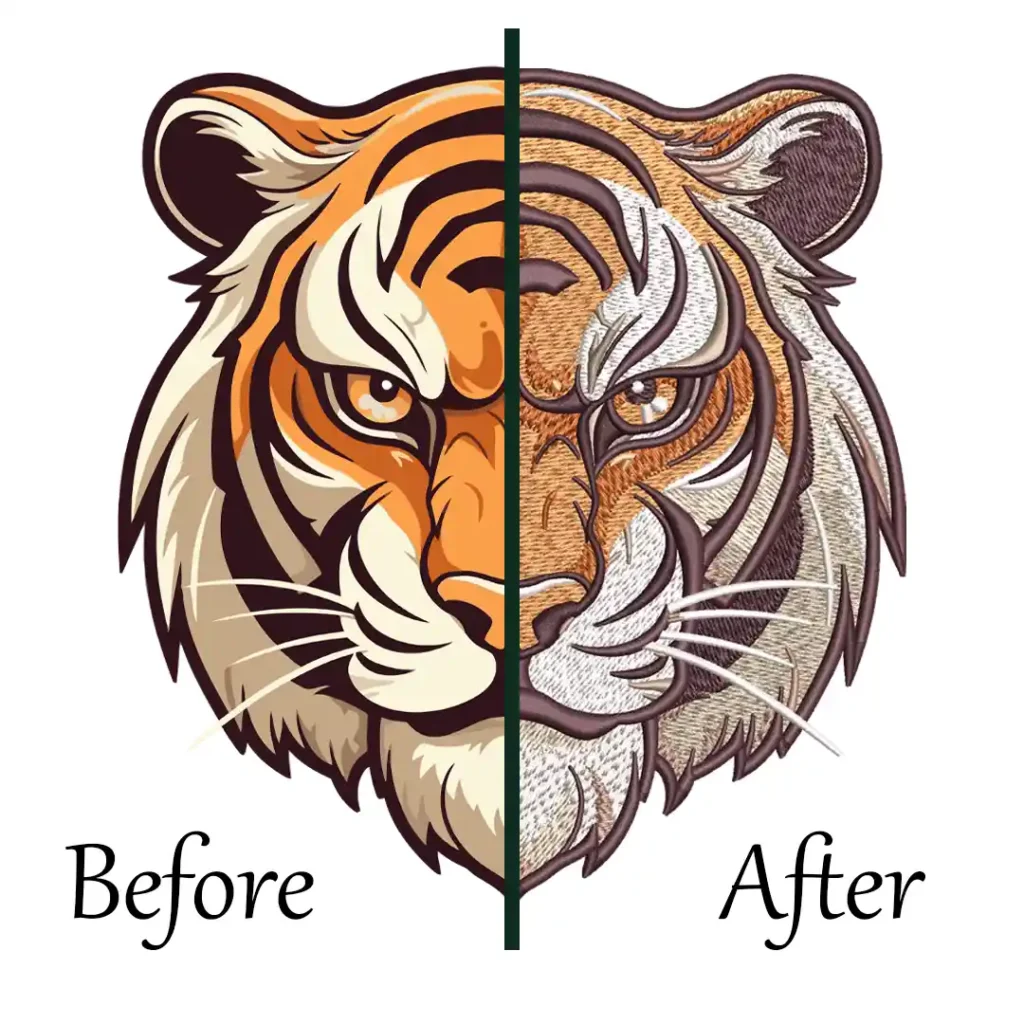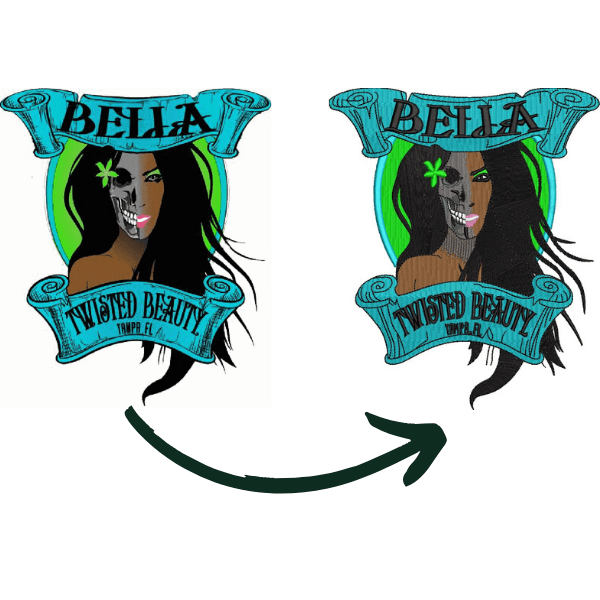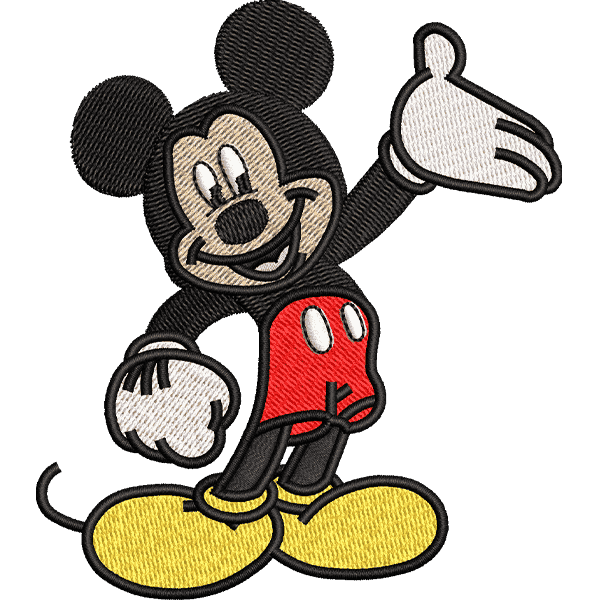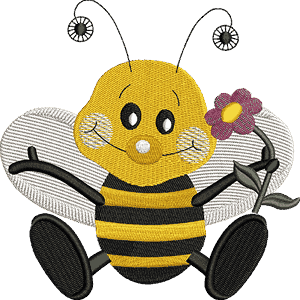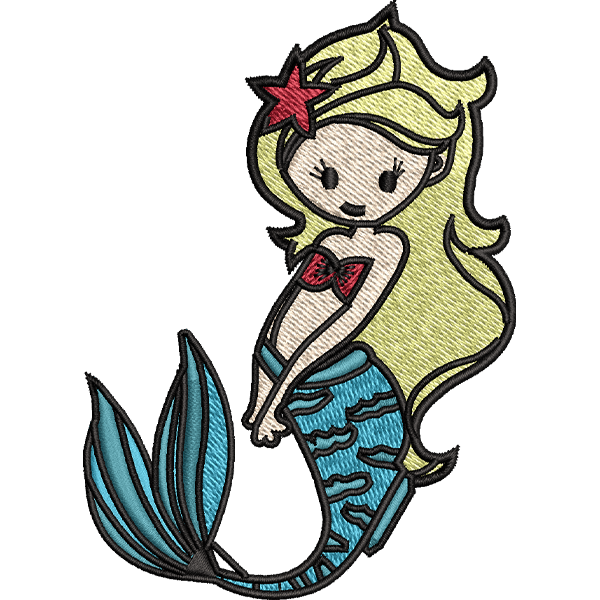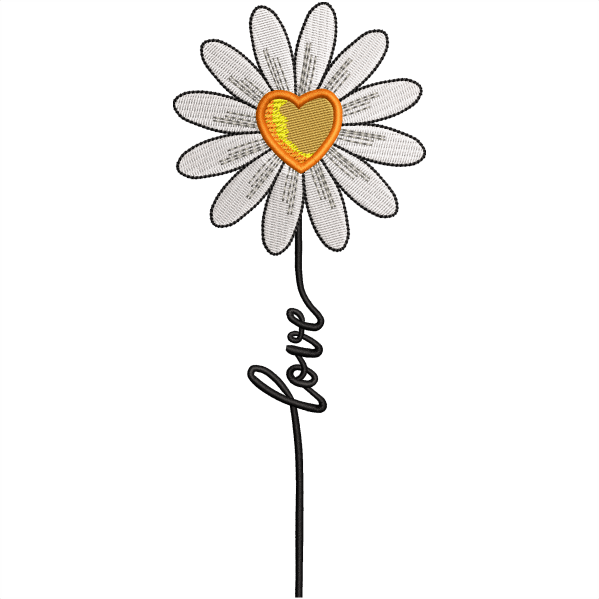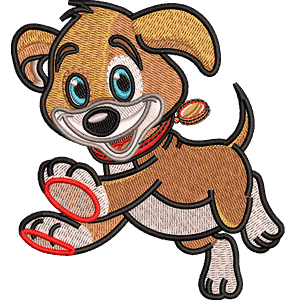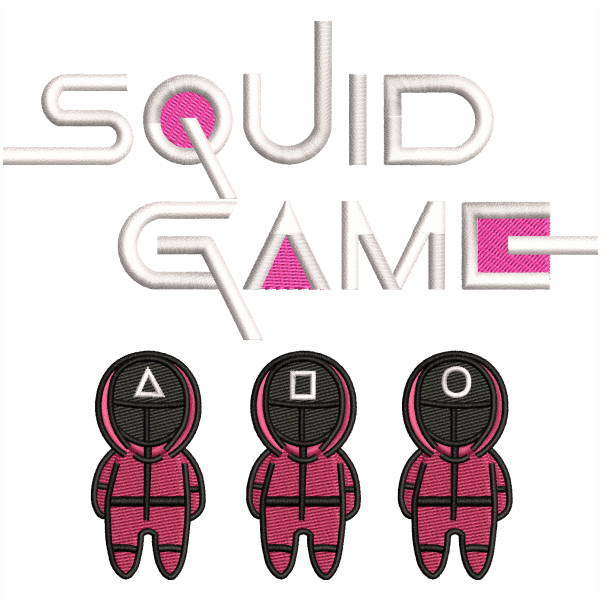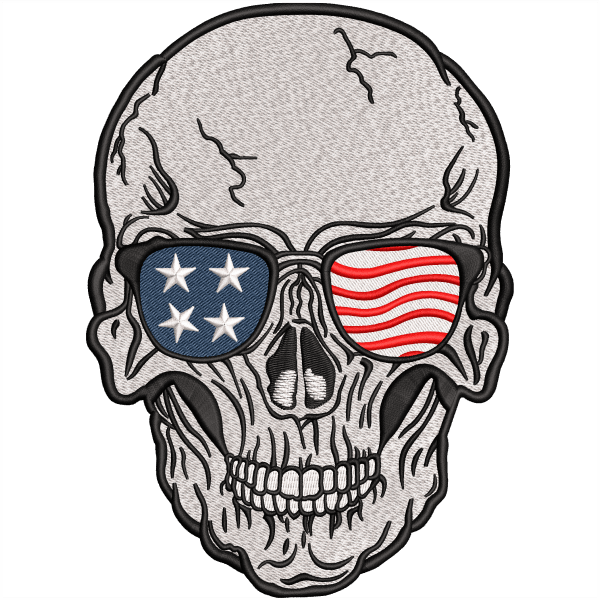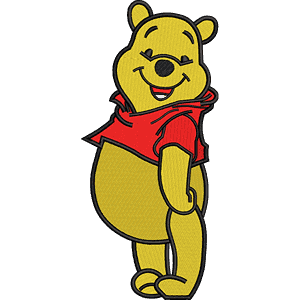Are you confused about choosing between embroidery vs printing for your custom clothing? Both are great options, but they work best for different purposes. Embroidery gives a strong and premium look, making it perfect for things like hats, jackets, and uniforms. Printing, however, is better for colorful and detailed designs on t-shirts or when you need many items quickly.
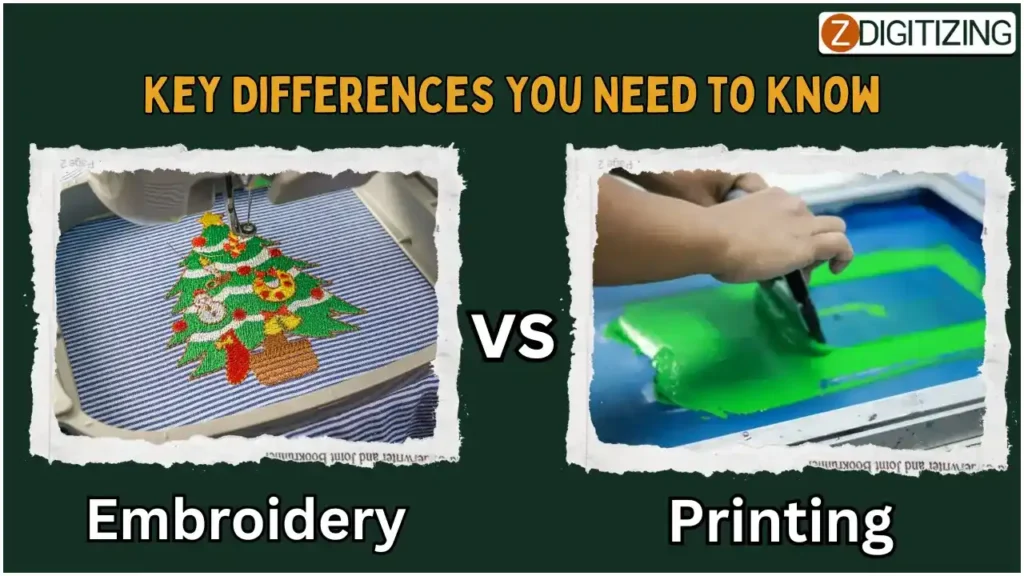
In this article, we’ll explain the main differences between embroidery and printing, such as their durability, cost, and how they work on different fabrics. By the end, you’ll know which option is best for your needs. Let’s get started!
Embroidery vs Printing: Key Differences You Need to Know
What is Embroidery?
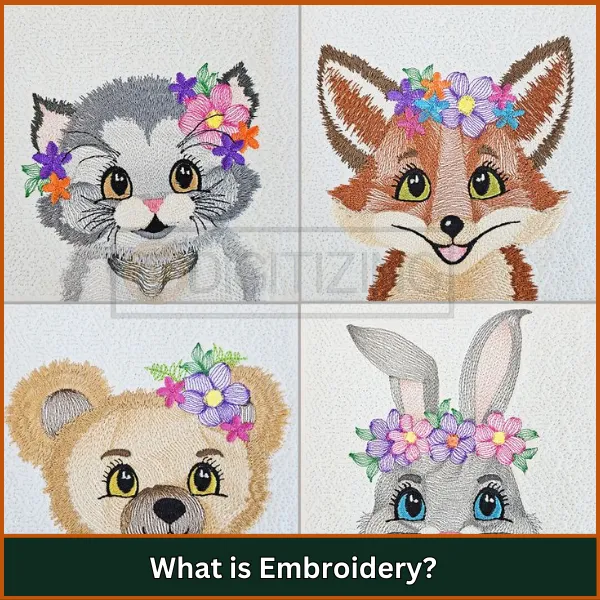
It is the art of decorating fabric with a needle and thread. It can include materials like beads, sequins, and pearls to make designs more beautiful. Commonly used on clothing, hats, and home items, embroidery adds a unique and personal touch.
Types of Embroidery
- Free or Surface Embroidery: Stitches are made on the fabric’s surface without considering its weave, commonly seen in crewel and traditional Chinese embroidery.
- Counted-Thread Embroidery: Designs are created by counting threads in the fabric, popular styles include cross-stitch and blackwork.
- Needlepoint or Canvas Work: Patterns are stitched on a canvas base, often following charted designs for precision.
- Machine Embroidery: Uses computerized machines for fast and consistent designs, perfect for bulk production.
- Hand Embroidery: Crafted manually, this allows for detailed and personalized designs, showcasing artistic skills.
Embroidery Digitizing & Vector Art Services
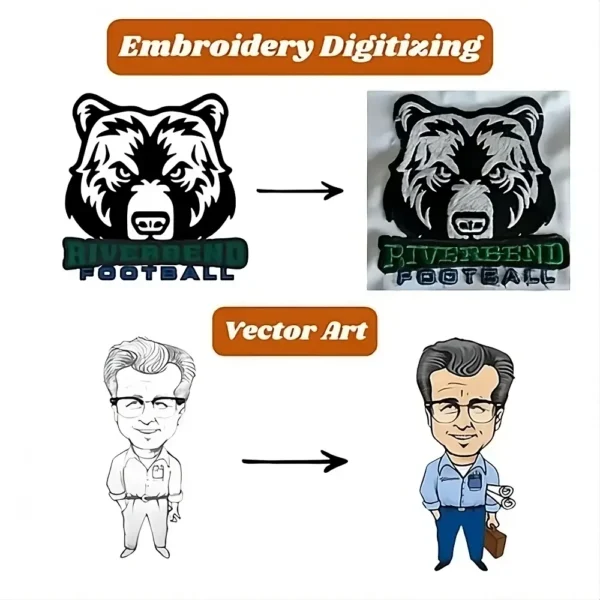
Looking for embroidery digitizing and vector art services that are affordable and reliable? We offer fast turnaround time, guaranteed quality, and the option to preview your design before payment, we make sure you get exactly what you need. Your satisfaction is our top priority, and we’re dedicated to delivering the best results. Don’t wait—try ZDigitizing today and see the difference in quality and service!
Embroidery Digitizing & Vector Art Services
Looking for embroidery digitizing and vector art services that are affordable and reliable? We offer fast turnaround time, guaranteed quality, and the option to preview your design before payment, we make sure you get exactly what you need. Your satisfaction is our top priority, and we’re dedicated to delivering the best results. Don’t wait—try ZDigitizing today and see the difference in quality and service!
Pros and Cons
Pros | Cons |
|
|
What is Printing?
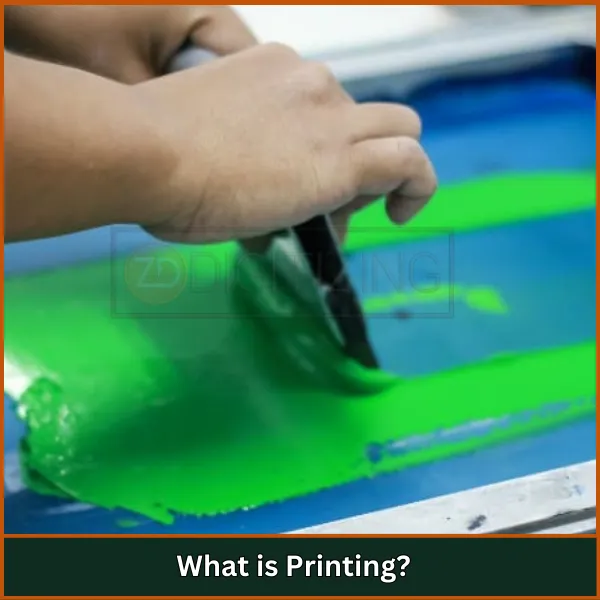
It is the process of transferring text, images, or designs onto surfaces like paper, fabric, or plastic. It is widely used in industries like publishing and textiles, with the method chosen based on material, design, and production needs.
Types of Printing
- Screen Printing: Ink is pressed through a mesh screen onto the surface, often used for fabrics and promotional items.
- Digital Printing: Prints directly from digital files without plates, ideal for small runs and quick production.
- Offset Printing: Transfers ink from a plate to a rubber blanket, then onto the surface, great for high-quality bulk printing.
- Flexography: Uses flexible plates to print on materials like packaging and labels, offering fast production speeds.
- Sublimation Printing: Uses heat to transfer dye onto materials like polyester, creating vibrant, detailed designs.
- Gravure Printing: Engraved cylinders print high-quality images, suitable for long runs like magazines and packaging.
- 3D Printing: Layers materials to create three-dimensional objects, used for prototypes and custom items.
Pros and Cons
Pros | Cons |
|
|
Key Differences Between Embroidery vs Printing
When choosing between screen printing vs embroidery, it’s essential to understand how they differ in various aspects. Both techniques offer unique benefits depending on your design and material needs.
- Appearance
- Durability
- Cost Considerations
- Design Complexity
- Texture
- Production Speed
- Material Compatibility
- Maintenance and Care
1. Appearance
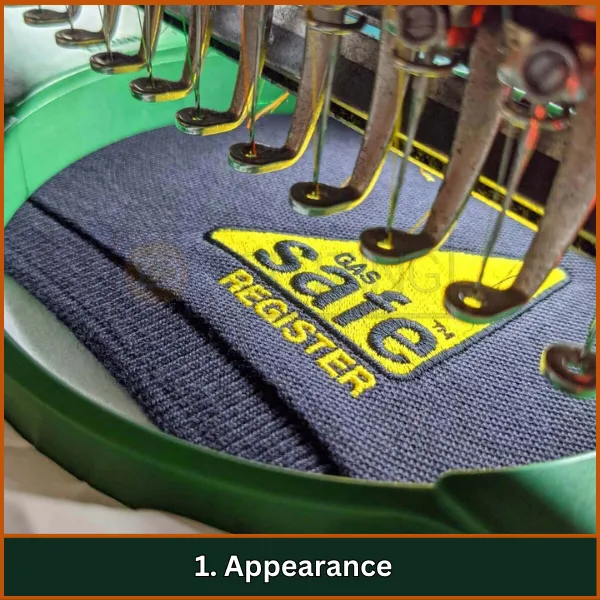
Embroidery gives a high-end, professional look with its raised, textured, three-dimensional designs that stand out on garments. This makes it perfect for items like uniforms or jackets. On the other hand, printing creates a flat and smooth finish that works well for vibrant colors and detailed designs, commonly used for casual wear and promotional items.
2. Durability
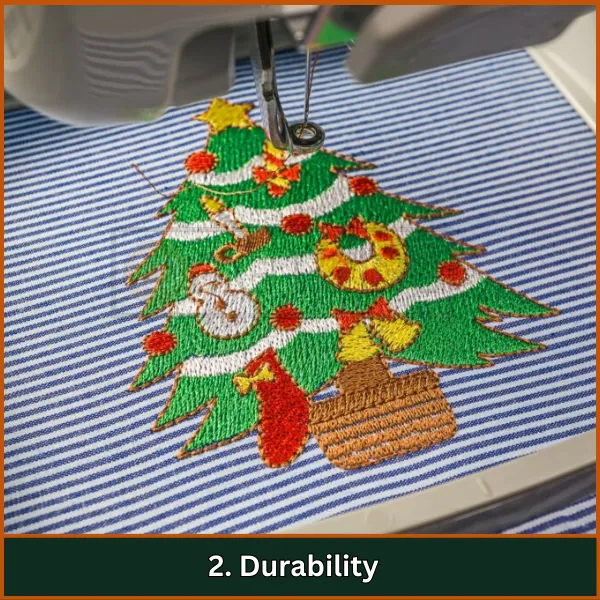
Embroidery is incredibly durable, as the stitched designs are less likely to fade, crack, or peel, even after frequent washing and use, making it ideal for long-lasting applications. In comparison, embroidery vs printing, printed designs on fabric may fade or crack over time, especially with heavy laundering or improper care.
3. Cost Considerations
Embroidery generally costs more due to the labor-intensive nature of stitching and the equipment involved. Larger or more intricate designs increase the cost further. Printing is typically more cost-effective, especially for bulk orders or simpler designs, as the setup costs are lower and can be spread across multiple items.
4. Design Complexity
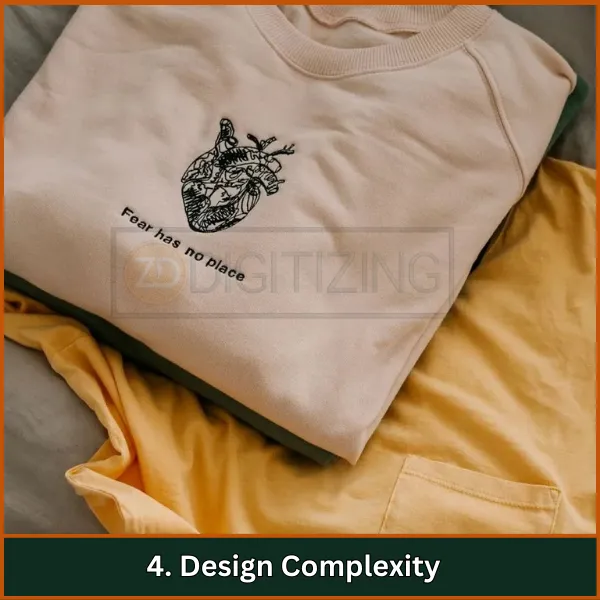
Embroidery works best for simple designs like logos or text, as it struggles to replicate intricate patterns, gradients, or fine details. Printing, however, can handle complex, vibrant, and highly detailed designs with ease, making it a better option for elaborate artwork.
5. Texture
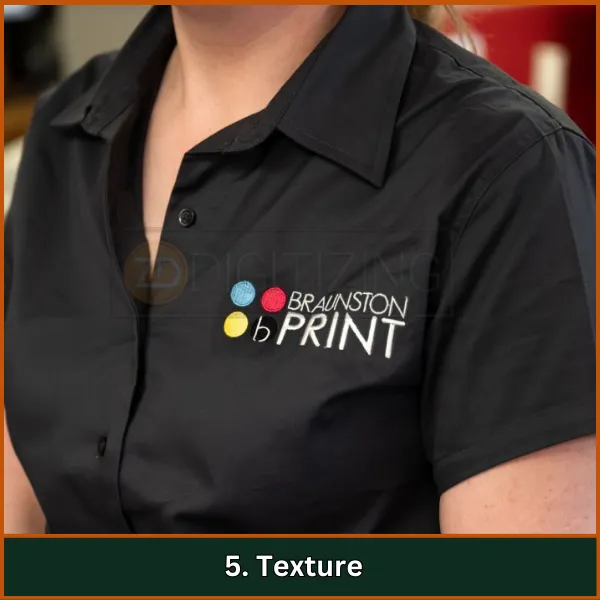
Embroidery adds a textured, raised feel to designs, which enhances their overall appeal and makes them stand out visually. Printed designs, by contrast, are flat and smooth, offering a softer feel against the skin. While embroidery adds dimension, printing is more seamless for casual or lightweight clothing.
6. Production Speed
When comparing embroidery vs printing, embroidery takes more time to produce due to the stitching process and setup involved, especially for complex designs. In contrast, printing methods, particularly digital printing, are faster and can complete orders quickly, making them ideal for projects with tight deadlines.
7. Material Compatibility
Embroidery works well on materials like cotton, polyester, and denim but may not perform as effectively on very thick or fuzzy fabrics like wool. Printing, however, can be applied to a wide range of materials, including textiles, plastic, and metal, making it more versatile for diverse projects.
8. Maintenance and Care
When comparing printing vs embroidery, embroidered items require extra care, such as washing them inside out and avoiding rough handling to protect the stitches. Printed items, while generally easier to maintain, can still fade or crack over time with frequent washing or exposure to harsh conditions. Proper care, like gentle washing, helps extend the life of both embroidery and printed designs.
Best Use Cases for Each Method (Embroidery vs Printing)
When deciding between embroidery vs screen print, it’s essential to consider the specific use case. Each method offers unique advantages, making them suitable for different applications based on design, durability, and cost.
When to Use Embroidery Techniques
- Corporate Apparel: Perfect for uniforms and business shirts that need a polished and professional appearance.
- Promotional Items: Ideal for caps, bags, and jackets where durability and high-quality logo representation are key.
- Sports Team Gear: Excellent for jerseys and team apparel, ensuring designs last through regular use and washing.
- Gifts and Personal Items: Great for personalized items like monogrammed towels or blankets, adding a thoughtful touch.
- Workwear: Best for heavy-duty clothing that requires durable branding to withstand frequent washing.
- Event Merchandise: Ideal for unique items for events like conferences or trade shows, offering a premium feel.
When to Use Printing Technique
- Promotional Items: Perfect for t-shirts, tote bags, and giveaways where cost-effective, vibrant designs are needed.
- Large Orders: Cost-efficient for bulk items like banners, posters, and flyers for marketing or events.
- Detailed Designs: Suitable for intricate, colorful graphics requiring high precision, especially on apparel.
- Short Runs: Works well for small custom orders with quick turnaround times, thanks to digital printing.
- Packaging and Labels: Effective for creating eye-catching packaging with high-quality graphics and text.
- Art Prints: Great for reproducing fine art or photography with vibrant colors on various materials.
Embroidery Digitizing & Vector Art Services

Looking for embroidery digitizing and vector art services that are affordable and reliable? We offer fast turnaround time, guaranteed quality, and the option to preview your design before payment, we make sure you get exactly what you need. Your satisfaction is our top priority, and we’re dedicated to delivering the best results. Don’t wait—try ZDigitizing today and see the difference in quality and service!
Embroidery Digitizing & Vector Art Services
Looking for embroidery digitizing and vector art services that are affordable and reliable? We offer fast turnaround time, guaranteed quality, and the option to preview your design before payment, we make sure you get exactly what you need. Your satisfaction is our top priority, and we’re dedicated to delivering the best results. Don’t wait—try ZDigitizing today and see the difference in quality and service!
Conclusion
Deciding between embroidery vs printing depends on what you need. Embroidery is best for a strong and professional look, like for hats and jackets. Printing is great for colorful designs on t-shirts or when you need a lot of items quickly.
At ZDigitizing, we can help with both! We offer embroidery digitizing and vector art services at low prices, with fast delivery and guaranteed quality. You can even see a preview of your design before it’s done. If this is your first time with us, you’ll get 50% off your first order!
Let us make your custom designs easy and perfect. Contact us today!
FAQs
Embroidery is more durable as it doesn’t fade, crack, or peel over time, making it ideal for long-lasting designs. Printing may wear off or fade after repeated washing.
Printing is generally more cost-effective, especially for bulk orders, as setup costs are spread across a large quantity. Embroidery tends to be more expensive, particularly for detailed or large designs.
Printing is better for complex designs as it can handle intricate details, gradients, and multiple colors. Embroidery is ideal for simpler, bold logos or text.
No, embroidery works best on thicker, textured fabrics like hats and jackets, while printing is more suitable for smooth materials like cotton or polyester.
Printing usually has a faster turnaround time, especially for bulk orders, as it’s less labor-intensive than embroidery. Embroidery takes longer due to its detailed stitching process.

